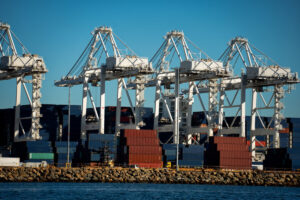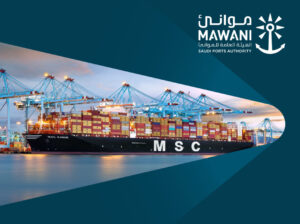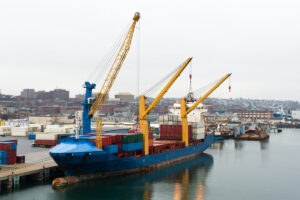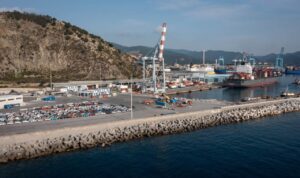Two Thomas Miller managed transport insurers, freight insurance specialist TT Club and the UK P&I Club, are encouraging the international shipping community’s participation in the Hazcheck Restrictions Portal by making it free of charge.
The new global portal for the whole supply chain aims to make operations more efficient and safer by supporting Hazcheck Restrictions, which allow container shipping companies to upload the operator, vessel and port restrictions for their operations, check for dangerous goods (DG) compliance with partner lines and accept provisional bookings.
Exis Technologies, a supplier of compliance systems for the management of dangerous goods in sea transport, is supporting the next phase of the project to allow container lines, ports, terminals, shippers and forwarders to upload their data into the portal free of charge for a minimum of two years.
The portal started as an initiative with several major container lines that already used Exis Technologies range of Hazcheck compliance systems for their DG shipping operations, particularly to resolve issues posed under vessel sharing agreements.
Top Four Dangerous Shipping Statistics
Peregrine Storrs-Fox, Risk Management Director, TT Club, said: “TT Club has been working alongside Exis Technologies since 2009 to deliver e-learning training solutions to the global supply chain.
“The Hazcheck Restrictions portal is an ambitious initiative aimed at reducing incidents related to dangerous goods shipments. Stakeholder engagement, particularly from ports and terminals, has the potential to deliver a portal which will make a huge difference for the intermodal industry.”
James Douglas, Director, Exis Technologies said: “We are delighted that TT Club and UK P&I Club have recognized the potential in our Hazcheck Restrictions portal. We hope that the supply chain will join us in our efforts to create this exciting new portal”.
Around 10% of containerized shipments include DG, with the result that some ships will have more than a thousand containers on any given voyage.
Specific voyage legs need critical checks for all the shipping of DG.
A new technical paper 'The VGM Ruling: A Review of the Implementation' from global shipping insurer TT Club, has explained the impact important international regulations have had since coming into force over a year ago
Critical check facts:
- Most lines restrict or prohibit certain classes of DG (particularly explosives, radioactive materials and some organic peroxides in reefer containers) so the booking line needs to know if the partner line that will carry the box or boxes will accept the DG
- Detailed stowage requirements (–such as on deck only, away from accommodation, or away from sources of heat) mean that suitable space is finite
- Many ports and individual container terminals have strict rules on the classes of DG that can be loaded, unloaded or transhipped, or even present on board while the ship is in port. Significant disruption can ensue if the 'wrong' DG is aboard a ship.
View transport and logistics insurance solutions from TT Club
TT Club said the problem becomes clear once you multiply this process by the thousands of partner line DG bookings made each day and by the number of ports and terminals in the network, under time pressure, and the scale and complexity.
Unlike the world of airline cargo shipments, there is no single database of port and terminal restrictions or operator restrictions.
This leaves each shipping line trying to capture and keep its own record of port and terminal restrictions as they change on a frequent basis anywhere in their global network.
The vision of the Hazcheck Restrictions Portal is to deliver significant simplification for all stakeholders and improve safety and compliance.
Stuart Edmonston, Loss Prevention Director for UKP&I Club, commented: “The vision of the Hazcheck Restrictions Portal is to deliver significant simplification for all stakeholders, and improve safety and compliance”.









